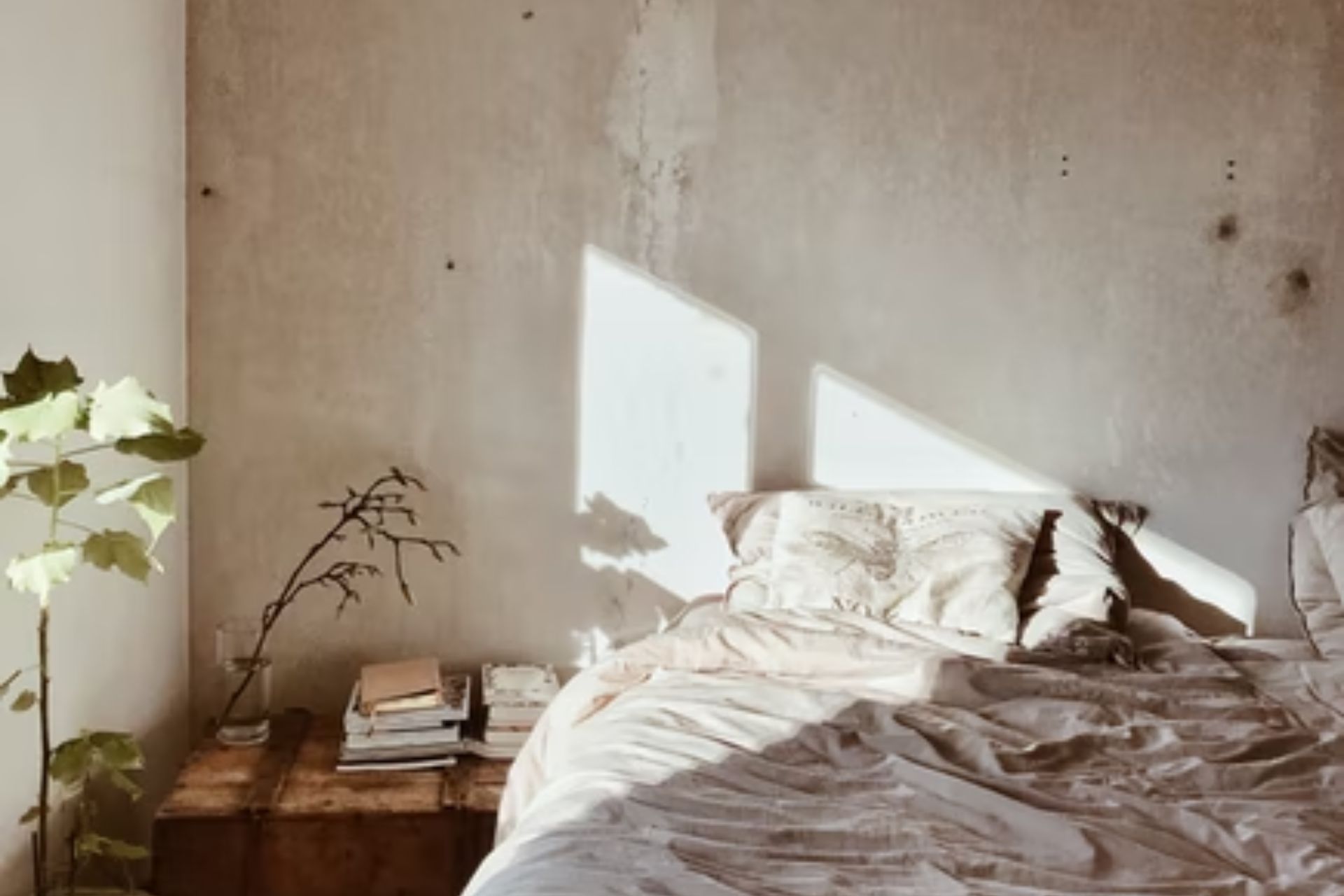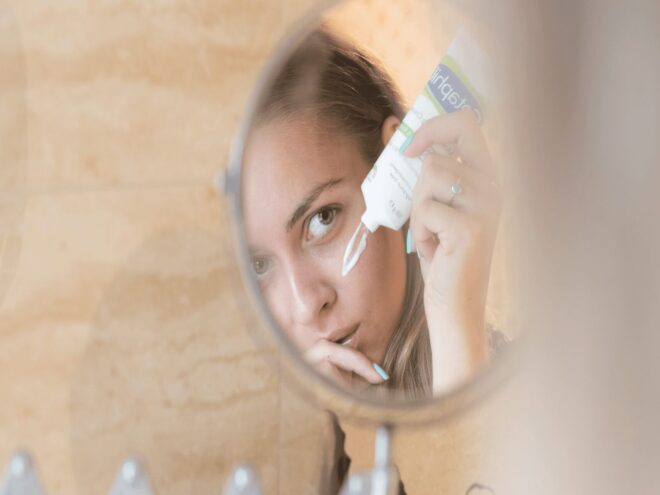Wellness • 02/17/2023
10 Tips for Improving Sleep Habits and Hygiene

Revivalist is a reader-supported endeavor and our posts may contain affiliate links. When you buy through links on our site, we may earn an affiliate commission.
Have you been struggling with your sleep patterns lately? You may assume that outside factors have disrupted your sleep, but the truth could be that you just have poor sleep hygiene. When you rest for the night, you must ensure you take care of your body just as well as you do during the waking hours. Try to implement some of these techniques to keep yourself feeling healthy and happy, both when you’re awake and asleep.
1. Build a Nighttime Routine
A nighttime routine is the easiest way to ensure you take care of your body. As a bonus, it gives you something monotonous to do as you wind down for bed — monotonous activities that might make you tired enough to feel sleepy just by going through the motions. Though it might be challenging to stick to a routine at first, doing so can provide you with more benefits than drawbacks.
Sometimes, when you need assistance building a lasting routine, you might employ the help of an app that can help you stay on track with everything you need to do. Once you’ve become a pro at sticking to your routine, you may be able to finish it without guided help.
You may also find it helpful to plan your breakfast the night before, so you have something to look forward to in the morning. The prospect of a proper breakfast before you start your day can motivate you to get out of bed sooner and have a more restful sleep.
2. Use Blackout Curtains
Everyone should want blackout curtains in their bedroom. These curtains come in several different colors, not just black, so they’ll fit with any decor. Blackout curtains are so significant because they limit the amount of light that sneaks into your bedroom at night, making them lifesavers if you live in an area with lots of lights or other people. By just switching your curtains, you can limit how much sleep disruption you experience due to unwanted light.
3. Be Physically Active
Another great way to regulate your sleep hygiene is to take care of your body during the day by pushing it to its limits. A little workout during the day can help your body feel more tired when it’s time to rest for the night. You don’t need to push yourself to a detrimental point every day — just work out in a way that suits you and your needs. By the time your bedtime rolls around, you’ll be ready to fall asleep.
4. Keep the Noise to a Minimum
Many people can’t sleep with noise, which is why you may find that you sleep better without the TV or music. Some people do better with some form of noise that can block out the other, unwanted noises. “Pink noise,” similar to white noise, features lower frequencies that many people might find relaxing during their sleep and not disturb them as other noises might. Whatever your case, make sure that you’re doing what allows you to get the most rest possible.
5. Know How Much Sleep Is Right for You
One way to plan for optimal sleep hygiene is to know just how much sleep is “enough” for your personal needs. Most people need eight hours, but your personal sleep average depends on your circumstances. If you’re exercising much more than usual, you may need more sleep to replenish your energy and restore your muscles. If you’re recovering from an illness, you may also need to get more sleep so your body can heal itself properly.
6. Lower the Temperature
Not many people can sleep well in a warm room. You should optimize your space to be cooler for improved sleep hygiene. Remember, you can always add layers to your bed to stay comfortable at night. You’ll find better rest by sleeping in a cooler room, thanks to how easily you can optimize it to your comfort level.
7. Avoid Napping
While a midday nap might feel nice and give you the boost of energy you need, it might not always be the best decision. In many cases, napping can lead to more detrimental effects than positive ones. Aside from disrupting your sleep at night, you might also have a lower life expectancy or other health issues if you choose to nap regularly. Instead of napping, try jumping jacks or eating a meal if you haven’t already. These activities can give you some energy to carry on through the day.
8. Sleep Strategically
You should only go to bed when you feel tired. While you should do your best to maintain a regular bedtime, you won’t find it productive to lie awake in bed. If you remain awake for around half an hour after you’ve gotten into bed, get up. Leave the room and do something else to tire yourself out, such as drinking water or walking around a bit. These behaviors reinforce that your bedroom is meant for sleep.
9. Make Your Bedroom an Oasis
Your bedroom should reflect how relaxed you want to feel when you’re in there. If you struggle to put your phone down, make a rule that you leave all devices somewhere else in your home. People who frequently bring screens into their beds have lower sleep quality than those who leave the devices outside the room. To truly make your bedroom an oasis, you should enjoy time away from screens. It may help you to spend time reading before bed — that way, your brain is still stimulated, but you don’t need to rely on screens.
10. Limit Caffeinated Drinks
Caffeinated drinks can disrupt your sleep cycle and make it harder for you to fall asleep. When you should stop drinking caffeine during the day depends on your regular caffeine intake. You should aim to avoid caffeine around eight hours before you plan to sleep to receive better rest. Try not to drink soda or coffee with your dinner. You may just surprise yourself with how good you feel.
11. Keep It Consistent
Humans are creatures of habit. Your body comes equipped with innate circadian rhythms that govern your sleep-wake cycle. Unfortunately, modern reality doesn’t always allow you to listen to your biological cues. Some people work early hours while others pull the graveyard shift. However, you can train your body to go to sleep and wake up at the same time each day — if you train it to do so by keeping a consistent bedtime.
12. Try Melatonin Supplements
Some people swear by melatonin supplements to help them get their shuteye. This solution may work well if you’re a shift worker — it can help you retrain your body’s innate hormonal cycle to produce more when you need it most instead of at night. Research also found this remedy works best for people with delayed sleep phase syndrome, struggling to fall under and sleeping in each morning.
For best results, doctors recommend a 1 to 3-milligram dose approximately two hours before bedtime. Stop treatment if you don’t see results within a week or two.
13. Embrace White Noise
Maybe your lack of sleep stems from a snoring partner. Those tiny soft earplugs you can buy in bulk at hardware stores don’t cut the noise enough, and headphones are too uncomfortable for sleeping. What can you do?
Enter the magic of white noise. You can invest in special machines for this purpose — some of them come parceled with an aromatherapy mister. Add a few drops of lavender and drift off to sleep while letting the sounds of ocean waves drown your partner’s heavy breathing. Want a free solution? You can find free white noise recordings on YouTube — download one to use overnight.
8. Sip Some Tea
Finally, why not try some herbal tea before bed? It’s far better than alcohol, which upsets your neurotransmitter levels. Although the hard stuff makes you sleepy at first, it raises GABA and suppresses glutamate. Your body later tries to rebalance your levels by increasing glutamate, an excitatory neurotransmitter. The result? You wake up halfway through the night.
What should you try? Here are your best options:
- Chamomile
- Lavender
- Lemon balm
- Passionflower
- Valerian
Warm milk also contains the amino acid tryptophan, the stuff in turkey that makes you so sleepy after Thanksgiving dinner. Why not try sipping on a warm milk and herbal tea blend, like this delicious recipe?
Improve Your Sleep Hygiene Bit By Bit
You might be used to doing things a certain way. In that case, altering your sleep hygiene and resting habits might be more challenging. With a bit of work, you can transform your bedroom into an oasis, free from all sources of stress. Consistency is key. You can take it one step at a time, and soon, your sleep hygiene will improve due to all the changes you’ve made. Just take care of yourself, and your body will do the rest.
Subscribe to Our Weekly Newsletter
We would love to connect deeper with you!


